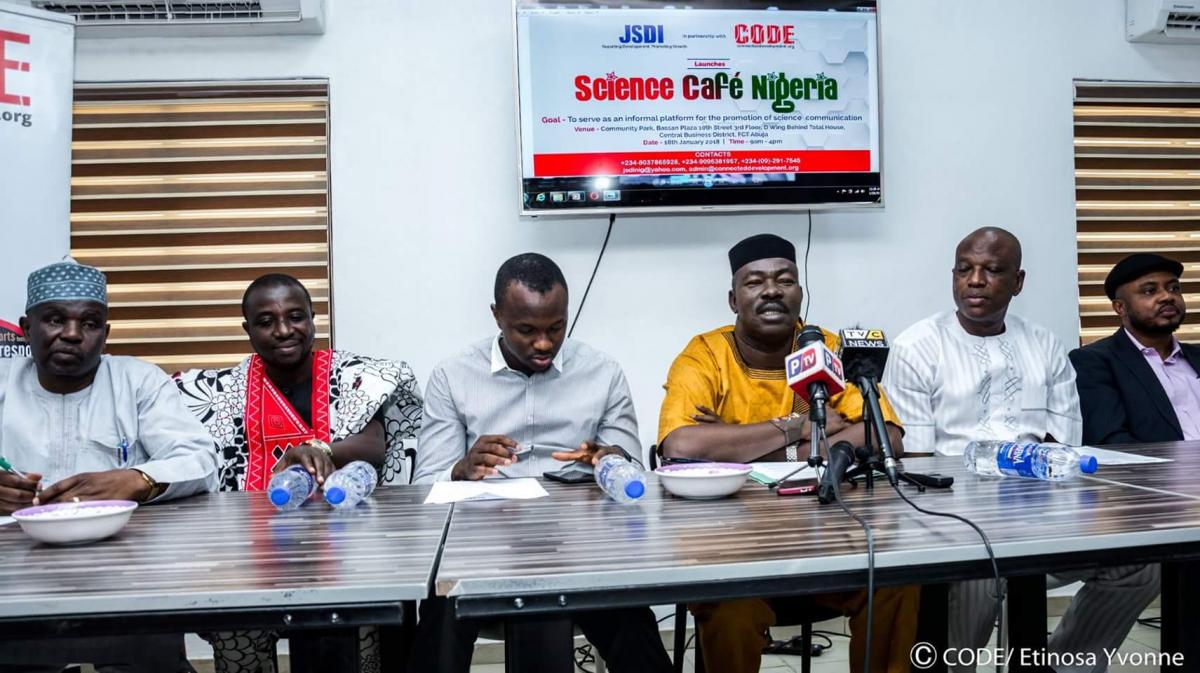
Nigeria has launched an informal information sharing platform known as Science Cafe in an effort to build science literacy, advance innovation and overcome public fears about technology.
Science and technology continue to play a center role in the drive to build a sustainble society. This role is visible in the transformation of financial and educational services, and most recently in agiculture, where advances in scientific innovations are helping to address issues around plant disease and mulnutrition, particularly in less developed countries.
Unfortunately, despite all the great contributions that science had made toward achieving sustainable livelihoods, science and technology still face opposition, due in part to the misinformation and mistrust that stems from public ignorance and the inability of scientists to communicate in simple language.
In order to bridge this opinion divide and advance innovation, there is a need for effective science literacy efforts, which is the driving force behind the Science Cafe initiative.
Science Cafe Nigeria serves as a monthly science hangout where stakeholders can engage with each other, as well as citizens, through meaningful debates that are based on sound scientific principles and promote information sharing. In addition, there will be a monthly publication of a science digest that will capture all the happenings in the science and technology sphere and a weekly radio/TV talkshow for the purpose of knowledge sharing and public enlightenment. Science Cafe Nigeria is a collaboration of Journalists for Social Development Initiative (a developmental communications NGO) in partnership with Connnected Development.
The cafe was launched on Jan. 18 with the objective of building friendships, relationships and partnerships to advance science literacy as articulated in the United Nation’s Sustainable Development Goal number 17, which calls for equitable access to science, technology and innovation, particularly in less developed countries through the Science Cafe platform.
Dr. Rufus Ebegba, director general of Nigeria’s National Biosafety Management Agency (NBMA), launched the cafe with a paper presentation titled “Science, technology and modern society: role of communication in promoting safe livelihoods. He said there is a problem with the way certain innovations are perceived in Nigeria. This is due to mistrust and fear, which could become a serious issue, especially when it begins to influence how quickly a technology is adopted to solve problems and drive national development.
The controversy surrounding modern biotechnology, GMOs and biosafety in particular is an example of how the gap between scientific findings and public opinions can threaten new scientific innovations, he said.
“Issues like these are why communicating science is a vital ingredient for development,” Ebegba added.
He urged journalists to be factual, evidence-based and solution-based in their quest to communicate science, and expressed his hope that the Science Cafe will teach people about safe science and technology to reorient public attitudes.
Finally, he stated NBMA’s willingness to always appear on the platform to support efforts to promote sustainable livelihoods. His agency also plans to train journalists using the cafe platform.
The event drew participants from government ministries, civil society groups, the diplomatic community, media and various stakeholders, with other participants also expressing support for intense science literacy and stating that the Science Cafe idea is timely.
The event ended with a tour of Connected Development’s community park facility, which will host the Science Cafe. Community park offers a collaborative atmosphere for start ups, innovators, thinkers, process creators, analysts and others who may need systems to start their projects, mainstream their innovations or prepare their scale up processes.
Opuah Abeikwen is a 2016 Alliance for Science Global Leadership Fellow from Nigeria.
